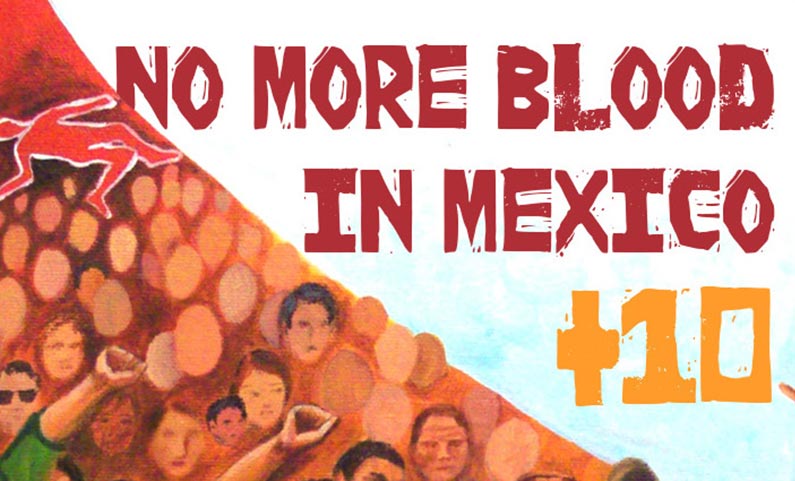No More Blood in Mexico +10 sheds light on the human rights crisis in Mexico
Author: UNB Newsroom
Posted on Oct 1, 2021
Category: UNB Saint John

The University of New Brunswick joined Amnesty International Canada to help bring support, solidarity and fight to end the suffering in Mexico through spreading awareness of the violence and human rights crisis in that country.
By partnering with Carleton University, Wilfrid Laurier University and Amnesty International, Dr. Hepzibah Muñoz-Martínez, associate professor at UNB Saint John, established No More Blood in Mexico: Struggles for Peace and Human Rights in Mexico 10 years ago as a speaking tour across Canada. The goal of the tour was to push Canadian authorities to act against the violence in Mexico and put the protection of human rights at the heart of all interactions with Mexico.
No More Blood in Mexico +10, a compelling virtual conversation, aimed to raise public awareness of the intensifying violence and human rights violations occurring against Mexican civilians. It featured six inspiring frontline human rights defenders in Mexico.
Two hundred attendees joined in to listen to the event. This was followed the next day by a closed meeting with Global Affairs Canada, the human rights defenders, the Americas Policy Group, Amnesty International and three academics, including Dr. Muñoz Martínez. The successful virtual conversation was held on the platform Zoom and simultaneous interpretations were available in English, French and Spanish.
Speakers included:
- Norma Don Juan, a Nahua Indigenous woman and member of the Council of Women Leaders of the National Coordination of Indigenous Women (CONAMI-Mexico).
- Grace Mahogany Fernández Morán, member of BUSCAME: Buscando Desaparecidos Mexico, a collective of families of the disappeared in Coahuila and Tamaulipas.
- Vidulfo Rosales Sierra, a lawyer with the Tlachinollan Human Rights Centre in Guerrero State. He has provided legal support for several cases involving abuses by state agents, including the enforced disappearance of 43 students of a rural teacher’s college in Ayotzinapa.
- Julia Quiñonez, coordinator of the Border Committee of Women Workers, the Comité Fronterizo de Obreras in Coahuila, Mexico.
- Mariano Machain, a human rights defender with SERAPAZ, a peace-building organization which supports grassroots networks of victims of human rights violations who campaign to defend their rights.
- Alberto Xicotencatl Carrasco, director of the Casa del Migrante refuge for migrants in Saltillo, Coahuila.
This event was co-sponsored by the Americas Policy Group, Amnesty International Canada, Canadian Association for Latin American and Caribbean Studies, Carleton University, CDHAL, Inter Pares, Mennonite Central Committee Latin America & Caribbean, Mining Watch Canada, PSAC Social Justice Fund, Steelworkers Humanity Fund, the University of New Brunswick and Wilfrid Laurier University.
Those interested in learning more about the human rights violations in Mexico can read Dr. Muñoz-Martíne’s publication, Uneven Landscapes of Violence: Geographies of Law and Accumulation in Mexico. Dr. Muñoz-Martínez is an associate professor in the department of history and politics at UNB’s Saint John campus. In her article, she examines the neoliberal state formation that has played an integral role in the growing violence in Mexico.
Media contact: Kathleen McLaughlin
Photo credit: Debbie Payne
